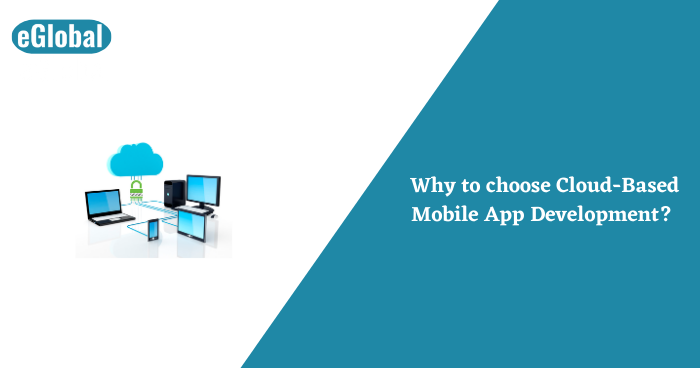

Cloud-based computing is assumed to be paramount in the digital world with the exponential growth in applications being developed around cloud computing.
According to CISCO, over 94% of workload and computing systems have shifted to the cloud in 2021. Although the cloud has become the foundation for digital business, many still misunderstand its capability and fail to draw on this ever-powerful tool.Before going further into why you should choose cloud-based solutions, let’s first understand cloud computing.
It refers to the delivery of on-demand services over the internet on a pay-as-you-go basis. In simple terms, rather than managing files and services on a local storage device, you can do the same over the internet in a cost-effective way.
A cloud application, or cloud app, is a software program wherein local and cloud-based components work together. A cloud app model depends on remote servers for accessing data through a web browser with a continuous Internet connection.
A cloud-based application must not be confused with a web application, though they have striking similarities. Both applications run on external servers or virtual servers and are accessed over the internet with a web browser.
However, a key difference between the two is the architecture of the applications. A web-based application must have a steady internet connection to continue functioning. A cloud-based application, on the other hand, can perform processing on a local computer meaning the data stored over the internet can be cached locally and made available offline.
Hence the two terms cannot and must not be used interchangeably.
In mobile software development, native apps run on one particular mobile device and are supposed to be downloaded and installed on the device. One of the challenges that native mobile app developers face is that they are required to create as many versions of the app to be able to run on as many different devices as they want it to run on. For instance, three different versions of the same native app have to be created to run it on Windows, iOS and Android.
Conversely, since cloud-based mobile applications are not downloaded, they can be used by any device having a steady internet connection and a web browser.
Cloud applications have garnered extreme popularity, among developers and end-users, owing to the various benefits it offers. A few of those have been mentioned below for you:
Performance: Cloud-based mobile applications provide streamlined work processes and improved profitability. They offer customization features that enhance the performance and functionality of the app. It can be tested, updated and deployed quickly. Thereby ensuring faster responses.
API: Application programming interface (API) is one of the main elements of cloud apps. APIs make the platform extensible. They provide faster platform access and enable more efficient maintenance of platform security.
It can access third party data sources. They provide congruency and ensure interoperability and unification.
Better Collaboration: Cloud-based applications enable organizations to get an easy and effective collaboration process by providing easy data sharing or editing options.
Scalability and Flexibility: Cloud computing allows you to pay for only what you want to use with easy and fast options for scaling up and down providing greater flexibility.
Service Storage: Cloud service storage is provided by cloud service providers who manage and maintain the servers saving you money, energy and space.
Data Security and disaster recovery: Cloud applications offer enhanced security provisions for sensitive data. Cloud-based applications provide robust data recovery methods.
Reduction in costs: A significant cut in the Budget is one of the main reasons for cloud migration as stated by various businesses who have transitioned to cloud-based development. The maintenance cost of the infrastructure and labour is reduced to a great extent.
Multi-tenancy: Unlike web- applications, Cloud-based applications offer multi-tenancy; that is, they support the varying requirements of the users.
Cloud-based applications save the end-users from the hassle of downloading, installing or upgrading them. End-users need not do anything except optimize the services and hence making cloud apps the popular choice among users and in turn, the developers.
Enough reasons to switch to cloud-based app development instead of working with web and desktop apps, don’t you think?
In conformity with the recent trends, development methodologies have changed with the ever-evolving technology trends. As technology has evolved, application development India patterns have also evolved to fit the current digital landscape. One such change in the direction of app development has been towards the cloud.
In a 2008 report, it was stated that 12% of the worldwide software market would go to the cloud and here we are today with 94% of the workload and computing processes shifted to the cloud.
With its valuable benefits such as better accessibility of data, raised standardization, cost reduction, scaling opportunities to name a few, it is imperative to say that cloud-based applications are the future of the digital world.
Are you planning to hire indian developers? contact us & get free quotation now……

Apr 25, 2025

Apr 24, 2025

Apr 12, 2025

© 2017 All rights reserved.